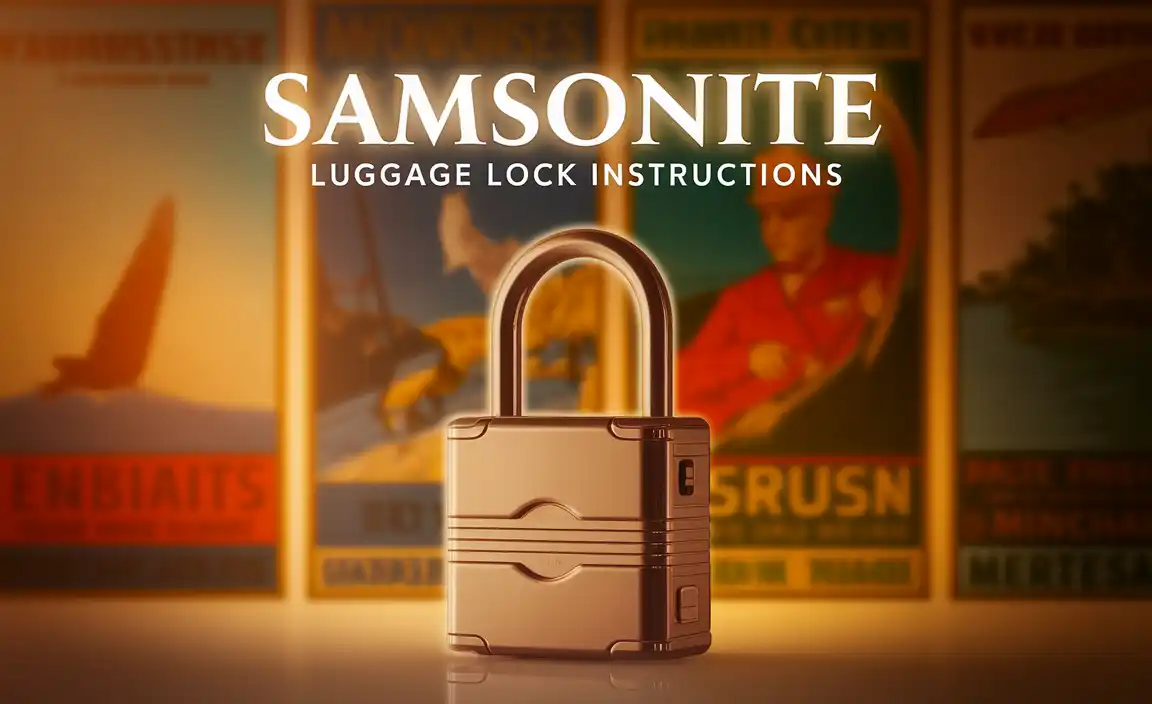Accra first-timers guide: Essential tips for a smooth arrival include packing light, understanding currency, learning basic phrases, staying hydrated, embracing local transport, and being open to new experiences. This guide ensures you’re well-prepared for an exciting trip.
Thinking about visiting Accra, Ghana, but feeling a little unsure where to begin? Planning a trip to a new city can feel overwhelming, especially when you want to make sure you have everything you need for comfort and ease. Many first-time visitors worry about packing the right things, how to get around, or what to expect culturally. This guide is here to simplify things. We’ll break down exactly what you need to know to feel confident and ready for your adventure in Accra. Get ready for practical advice that makes your journey stress-free and fun!
Your Essential Accra First-Timers Welcome Kit
Accra, the vibrant capital of Ghana, is a city that buzzes with an energy all its own. It’s a place where history meets modernity, where bustling markets sit alongside impressive architecture, and where the warmth of its people is as palpable as the West African sun. For anyone setting foot in Accra for the first time, a little preparation goes a long way. We’ve compiled the most crucial tips to ensure your introduction to this captivating city is smooth, enjoyable, and memorable. Think of this as your friendly guide, designed to boost your confidence and comfort from the moment you start planning until you’re exploring its lively streets.
1. Packing Smart: What to Bring for Comfort and Convenience
When packing for Accra, think light, breathable, and respectful. The weather is generally warm and humid, so light cottons and linens are your best friends. Don’t forget a good hat and sunglasses for sun protection. For navigating the city, comfortable walking shoes are a must. Consider bringing a small backpack or day bag for essentials like water, sunscreen, and any personal comfort items you might need throughout the day. If you require specialized personal care items, like adult diapers or child diapers for travel comfort, packing them in a discreet and accessible manner is key. Many modern adult and child diapers are designed for absorbance and discretion, making them ideal for long travel days or excursions.
Clothing Essentials:
- Lightweight, breathable fabrics (cotton, linen)
- T-shirts and tops
- Shorts and loose-fitting trousers/skirts
- A light jacket or sweater for cooler evenings, though rare
- Modest clothing for visiting religious sites (shoulders and knees covered)
- Swimwear if your accommodation has a pool
- Comfortable walking shoes or sandals
- Flip-flops for the hotel
Health and Personal Care:
- Insect repellent (especially important for evenings)
- Sunscreen with high SPF
- Hand sanitizer
- Any personal prescription medications (with doctor’s note if necessary)
- Basic first-aid kit (band-aids, antiseptic wipes, pain relievers)
- Discreet travel-sized personal care supplies, such as adult diapers or child diapers, can offer peace of mind and comfort, especially for longer journeys or outings. Ensure they are easily accessible.
Documents and Money:
- Passport and visa (if required)
- Copies of important documents (passport, visa, flight itinerary)
- Credit/debit cards
- Some local currency (Ghanaian Cedi – GHS) for initial expenses
- Emergency contact information
2. Understanding the Local Currency and Payments
The official currency in Ghana is the Ghanaian Cedi (GHS). It’s a good idea to familiarize yourself with the exchange rate before you arrive. While ATMs are available in Accra and many larger establishments accept credit cards, it’s always wise to have some cash on hand. Small vendors, taxis, and local markets primarily operate with cash. You can exchange currency at the airport upon arrival, at forex bureaus, or withdraw from ATMs. Always ensure you are using reputable banks for withdrawals. For budgeting and planning, research current exchange rates from a reliable source like the Bank of Ghana.
Tips for Handling Money:
- Inform your bank about your travel dates to avoid card issues.
- Carry a mix of cash and cards.
- Be aware of withdrawal limits on ATMs.
- Keep your cash and cards secure.
- Always ask for a receipt when making larger purchases.
3. Staying Connected: Mobile Phones and Internet Access
Staying connected is easier than you might think in Accra. You have a few options for your mobile phone. You can enable international roaming on your current plan, though this can be expensive. A more cost-effective approach is to purchase a local SIM card upon arrival. Several mobile network providers operate in Ghana, including MTN, Vodafone, and AirtelTigo. Purchasing a local SIM card will allow you to make calls, send texts, and access data at much lower rates. You can buy SIM cards and credit (airtime) at kiosks and shops throughout the city. Wi-Fi is also widely available in hotels, restaurants, and cafes, providing another way to stay in touch with friends and family back home.
Connectivity Options:
- International Roaming (can be costly)
- Local SIM Card (most economical for data and local calls)
- Public Wi-Fi (available in many establishments)
4. Navigating Accra: Transportation Tips for First-Timers
Getting around Accra offers a genuine taste of local life. While ride-sharing apps like Uber and Bolt are available and convenient, a significant portion of local transport relies on vibrant, sometimes chaotic, but efficient systems. The most common form of public transport is the “tro-tro,” a shared minibus that follows set routes. They are incredibly affordable but can be densely packed. For shorter distances or a more comfortable ride, taxis are plentiful. Always agree on the fare before starting your journey, as most taxis don’t use meters. Hiring a car with a driver for a day can be a good option for exploring multiple sites without the hassle of navigation and parking. If you are considering driving yourself, be aware of local driving conditions which can be challenging. Researching local traffic laws recommended by the Ghana Road Safety Commission can also be helpful if you’re venturing out on your own.
Transportation Methods:
- Tro-tros: Inexpensive local minibuses.
- Taxis: Widely available; negotiate fares beforehand.
- Ride-Sharing Apps (Uber, Bolt): Convenient and predictable pricing.
- Car with Driver: Ideal for day trips and comfort.
5. Embracing the Culture: Etiquette and Basic Phrases
Ghanaian culture is known for its warmth and hospitality. A friendly greeting goes a long way. Learning a few basic phrases in Twi, one of the major local languages, will be greatly appreciated. Simple greetings like “Akwaaba” (welcome) or “Maahefa” (how are you?) can open doors and foster genuine connections. Ghanaians are generally polite and value respect. When visiting homes or attending formal occasions, it’s customary to dress respectfully. When in doubt, err on the side of more modest attire. Be mindful of taking photos of people; always ask for permission first. Understanding these cultural nuances will enrich your experience and show respect for the local way of life.
Helpful Twi Phrases:
- Akwaaba: Welcome
- Maahefa: How are you? (informal)
- Medaase: Thank you
- Ɛyɛ: Fine/Good
- Mepɛ: I want/I like
- Wo ho te sɛn?: How are you? (more formal)
6. Staying Safe and Healthy in Accra
Accra is generally a safe city, but like any major urban center, it’s important to be aware of your surroundings. Exercise common sense precautions: avoid displaying large amounts of cash, keep valuables secure, and be cautious at night, especially in less crowded areas. Always have your hotel’s address handy. When it comes to health, staying hydrated is paramount due to the warm climate. Drink plenty of bottled or purified water. Be adventurous with the food, but for your first few days, stick to reputable restaurants and ensure food is cooked thoroughly. Vaccinations are recommended before traveling to Ghana; consult your doctor or a travel clinic well in advance of your trip for the most up-to-date health advice from organizations like the Centers for Disease Control and Prevention (CDC).
Health Precautions:
- Drink only bottled or purified water.
- Protect yourself from mosquito bites.
- Eat well-cooked food from reputable sources.
- Get necessary vaccinations and malaria prophylaxis if recommended.
- Carry a basic first-aid kit.
7. Food and Drink: A Culinary Adventure
Accra’s food scene is a delightful exploration of West African flavors. From street food to fine dining, there’s something for every palate. Staple dishes often include fufu (a pounded dough made from cassava and plantain), jollof rice (a flavorful rice dish cooked in a rich tomato sauce), and banku (fermented corn and cassava dough). Don’t miss trying fresh seafood, often grilled to perfection. When trying street food, look for vendors with high turnover and where food is cooked fresh. Remember to stick to bottled water or drinks from sealed containers. Enjoying the local cuisine is a huge part of experiencing Accra!
Must-Try Foods:
| Dish | Description |
|---|---|
| Jollof Rice | A fragrant rice dish with tomatoes, peppers, and spices. |
| Fufu | Pounded cassava and plantain served with soup. |
| Banku | Fermented corn and cassava dough, often served with grilled fish or soup. |
| Waakye | Rice and beans cooked with sorghum leaves, giving it a distinctive color, served with various accompaniments. |
| Shito | A popular Ghanaian chili sauce, often served with most meals. |
8. Exploring Accra: Key Attractions and Activities
Accra offers a wealth of experiences for first-time visitors. A visit to the Independence Square is a must for understanding Ghana’s history. The Kwame Nkrumah Mausoleum is dedicated to Ghana’s first president and offers insights into the nation’s struggle for independence. For a vibrant cultural immersion, head to the Makola Market, a bustling hub of commerce where you can find almost anything. The National Museum of Ghana provides a deeper dive into the country’s rich heritage. Don’t forget to visit the serene Artists Alliance Gallery for contemporary Ghanaian art. For a taste of beach life, Labadi Beach and Kokrobite Beach are popular spots.
Popular Attractions:
- Independence Square
- Kwame Nkrumah Mausoleum
- Makola Market
- National Museum of Ghana
- Artists Alliance Gallery
- Jamestown (for historical and fishing scenes)
- Labadi Beach
9. Respecting Local Customs and Traditions
Ghana is a diverse country with a rich cultural heritage. Showing respect for local customs will greatly enhance your interactions and overall experience. Ghanaians place importance on family, community, and respect for elders. When greeting someone, a handshake is common. If you are right-handed, offer your right hand. For women, it’s often polite to wait for a woman to extend her hand first. During conversations, loud or aggressive behavior is generally frowned upon. Understanding and observing these social norms demonstrates politeness and cultivates goodwill.
Key Cultural Etiquette Points:
- Greetings: A handshake is customary. Wait for elders or women to initiate if unsure.
- Modesty: Dress modestly, especially when visiting religious sites or rural areas.
- Respect for Elders: Show deference and respect to older individuals.
- Photography: Always ask permission before taking photos of people.
- Patience: Things may move at a different pace than you’re used to; embrace it.
10. Staying Connected with Your Essentials
For travelers who need to manage personal care needs, such as adult diapers for comfort during long days or child diapers for young children, planning ahead is crucial. Carrying a small, discreet travel pouch with your essentials can provide peace of mind. Modern incontinence products are designed to be highly absorbent and discreet, ensuring comfort throughout your explorations. For parents traveling with young children, having child diapers readily available in your day bag is a lifesaver. Staying prepared means less worry and more enjoyment of your Accra adventure. Companies specializing in travel-friendly adult and child diapers offer solutions that are lightweight and highly effective.
Travel Comfort Checklist:
- Comfortable, breathable clothing
- Sun protection (hat, sunglasses, sunscreen)
- Reliable walking shoes
- Reusable water bottle
- Hand sanitizer and wet wipes
- Essential personal care items packed discreetly
- Copies of important documents
Frequently Asked Questions (FAQs)
Q1: What is the best time of year to visit Accra?
A1: The best time to visit Accra is generally during the dry seasons. The main dry season runs from November to March, with another shorter one from July to August. These periods offer pleasant temperatures and less humidity, ideal for exploring.
Q2: Is Accra a safe city for solo travelers?
A2: Accra is considered one of the safer cities in West Africa, especially for solo travelers. However, like any major city, it’s essential to remain aware of your surroundings, avoid displaying wealth, and be cautious at night. Stick to well-lit areas and use reputable transport.
Q3: How much money should I budget per day in Accra?
A3: Budgeting can vary widely based on your travel style. For a mid-range traveler, budgeting around $50-$100 USD per day can cover accommodation (mid-range hotel), food (mix of local and tourist spots), transport, and activities. Budget travelers could spend less, while luxury travelers would spend more.
Q4: What are the visa requirements for Ghana?
A4: Visa requirements depend on your nationality. Many nationalities require a visa to enter Ghana. It is highly recommended to check the official website of the Embassy of Ghana in your country or region for the most current and accurate information on visa applications and requirements.
Q5: Can I drink the tap water in Accra?
A5: No, it is not recommended to drink tap water in Accra. It’s best to stick to bottled or purified water to avoid any potential health issues. Ensure bottled water seals are intact before purchasing.
Q6: What are some common scams to watch out for in Accra?
A6: While most interactions are genuine, be aware of common tourist scams such as overcharging for goods or services, especially in markets and taxis if a price isn’t agreed upon. Be wary of unsolicited “guides” offering services when you arrive at attractions. Always do your research and trust your instincts.
Q7: Is tipping expected in Accra?
A7: Tipping is not mandatory but is appreciated for good service. A small tip is customary for hotel staff, tour guides, drivers, and in restaurants, particularly in tourist-oriented establishments. Around 10% in restaurants is common if a service charge isn’t already included.
Conclusion
Your first trip to Accra promises to be an unforgettable experience, filled with vibrant culture, rich history, and the unparalleled warmth of the Ghanaian people. By preparing with these essential tips – from smart packing and understanding local customs to navigating transportation and embracing the delicious cuisine – you’re setting yourself up for a smooth and enjoyable journey. Remember to stay hydrated, be open to new experiences, and always carry a sense of adventure. Accra is a city that rewards curiosity and a willingness to engage. We hope this guide has provided you with the confidence and practical advice needed to explore this incredible West African gem. Happy travels!





